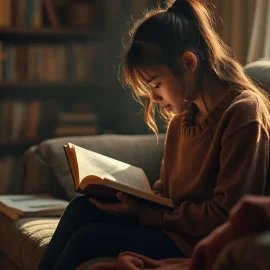

This article is an excerpt from the Shortform guide to "The Mel Robbins Podcast". Shortform has the world's best summaries and analyses of books, podcasts, and more.
Like this article? Sign up for a free trial here.
How does Mel Robbins explain the psychology of secrets? Why do we keep secrets, even if they could hurt somebody?
In an episode of The Mel Robbins Podcast, Robbins and guest Dr. Michael Slepian delve into the psychology of secrets. Slepian specifically focuses on their prevalence in personal relationships, particularly suspected infidelity.
Learn more about the human tendency to keep secrets from people, no matter how extreme they are.
The Psychology and Impact of Secrets
The psychology of secrets discussion is informed by Slepian’s personal experiences. His emphasis is on approaching suspected infidelity not as an accusation but as a call for transparency, trust, and mutual effort to resolve issues.
Robbins extends the conversation to include the impact secrets can have on individuals. She discusses “self-estrangement” that can occur when secrets are suppressed. The individuals disconnect from their self-identity, leading to a deterioration of self-trust pertaining to their life experiences.
The Nature and Formation of Secrets
Slepian’s comprehensive research suggests that the average individual has around thirteen secrets at any given time, five of which have never been shared. These secrets span a spectrum of topics, from serious lies, undisclosed romantic desires, and financial struggles to hidden family stories, personal dissatisfaction, mental health issues, and breaches of trust.
Holding onto secrets resembles carrying a physical weight according to Slepian’s research, enhancing our understanding of why revealing a secret often feels like lifting a burden.
Human secrecy mirrors behavior observed in other species like chimpanzees and developmentally emerges in childhood once children cultivate an understanding of their cognitive individuality from others.
Context
In the complex landscape of human relationships, secrets play a significant role in shaping our interactions and emotional well-being. Delving into the psychology of secrets reveals their profound impact on individuals and their connections with others. While no specific historical or recent events are mentioned, this topic remains relevant as personal relationships continue to evolve.
At its core, the psychology of secrets explores how withholding or revealing information can affect individuals and their relationships. Secrets have the power to create a sense of self-estrangement, where one feels disconnected from their own identity and experiences. This can lead to feelings of guilt, shame, anxiety, or even depression. Moreover, suspected infidelity is a common secret that can erode trust within romantic partnerships. Understanding cognitive individuality—the awareness and understanding of one’s own thoughts, feelings, and experiences as separate from others—is crucial in comprehending how secrets impact our mental health.
Transparency and trust are key themes intertwined with understanding secrets. Building trust requires open communication in relationships where both parties feel safe to share their thoughts and emotions without fear of judgment or betrayal. The impact of keeping or revealing secrets raises ethical questions about honesty versus protecting oneself or others from potential harm.

———End of Preview———
Like what you just read? Read the rest of the world's best guides to The Mel Robbins Podcast" at Shortform.
Here's what you'll find in our full The Mel Robbins Podcast episode summaries:
- Advice to make your life and your personal relationships better
- How to boost your confidence with techniques recommended by experts
- Research-based lessons combined with personal stories






